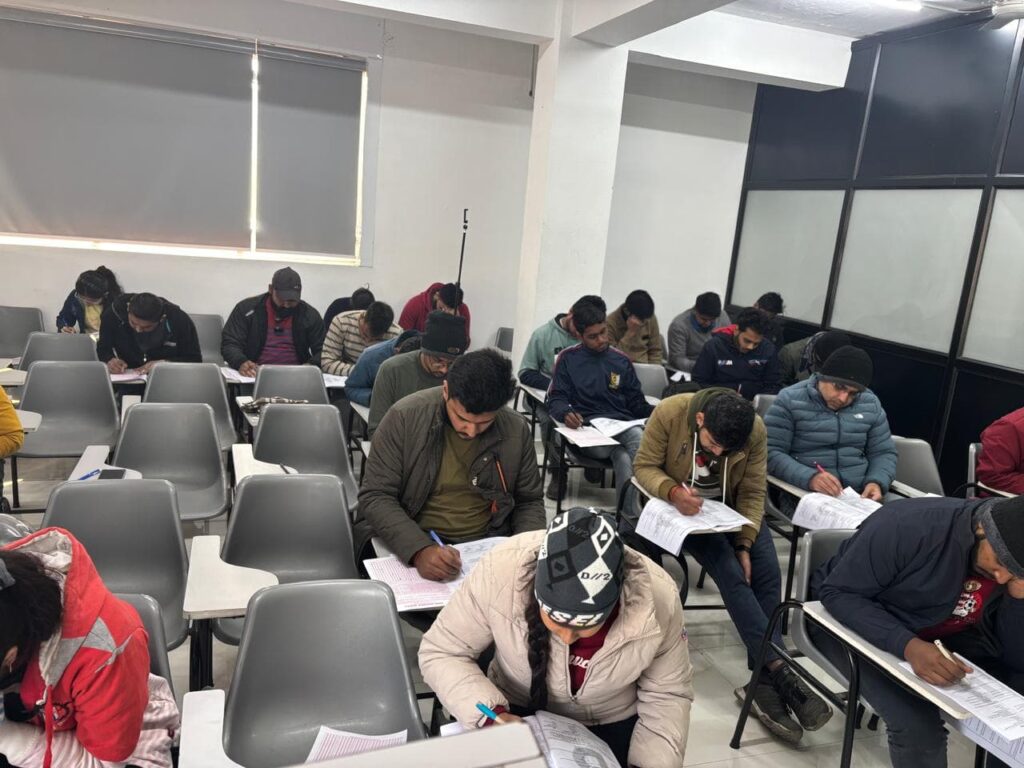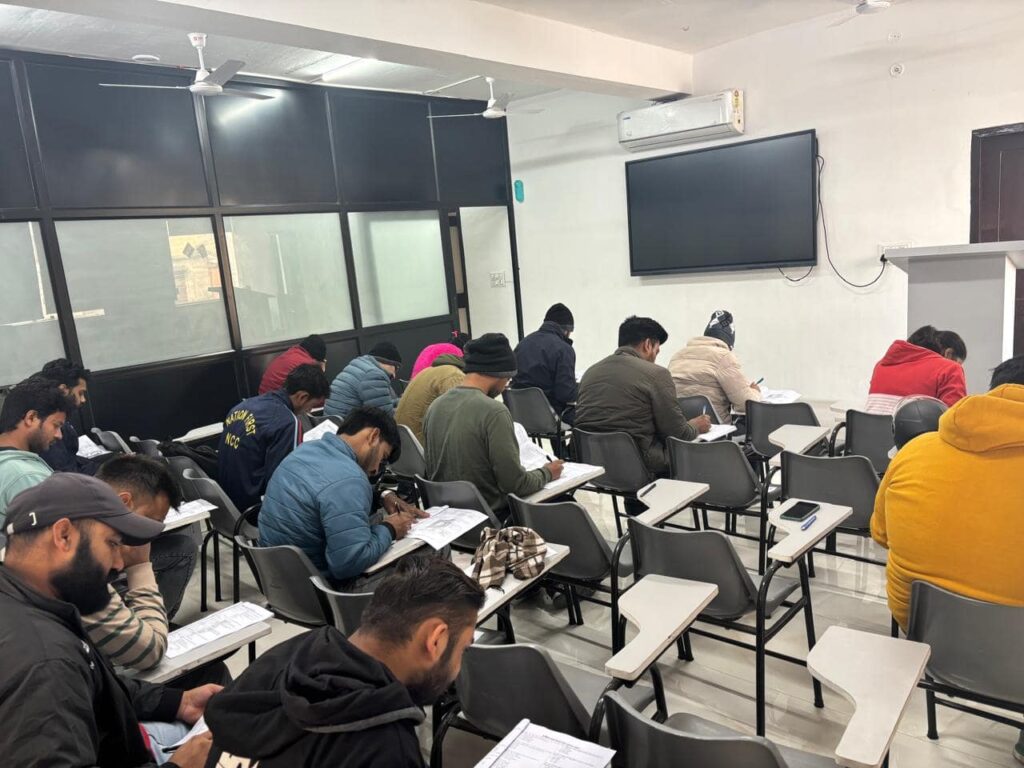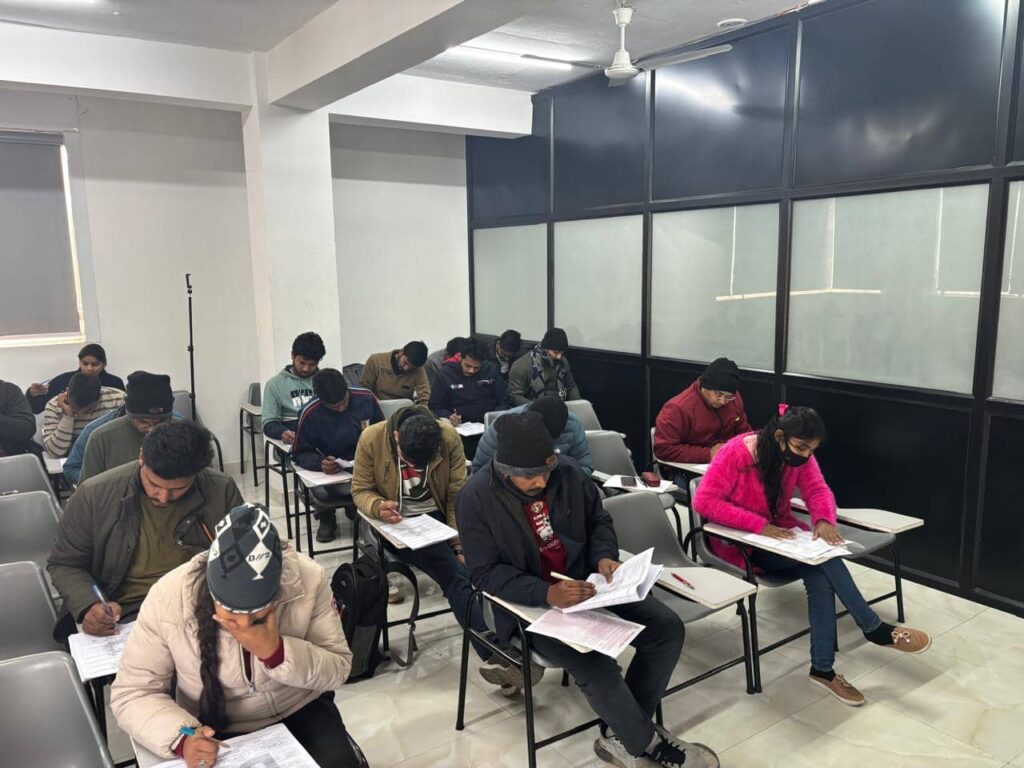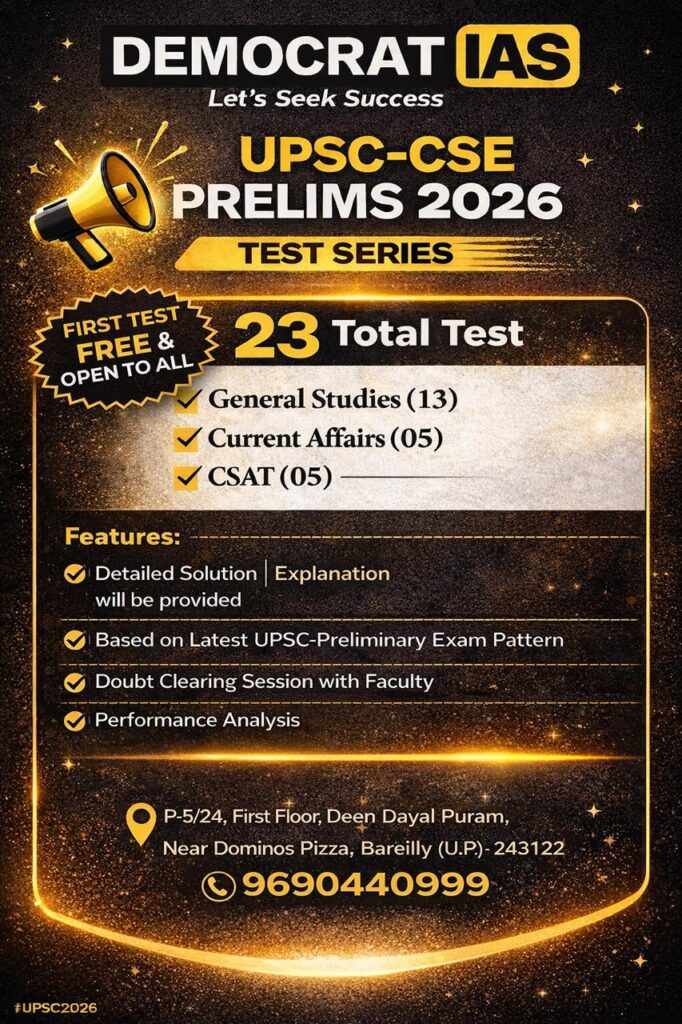
info@democartias.com

P-5/24, First Floor, Deen Dayal Puram, Near Dominos Pizza, Bareilly, (U.P) - 243122

The Optional Subject for the Civil Services Examination plays a critical role in determining a candidate’s success, and choosing the right subject can significantly influence one’s overall score. The UPSC allows candidates to select from 48 Optional subjects which includes 26 core subjects and 22 literature optional, and it is essential to opt for one that aligns with your interests, strengths, and future aspirations. Among the most popular and scoring subjects are Sociology, Public Administration, and Anthropology, all of which are offered by Democrat IAS.
Each of these subjects has a well-defined and comprehensive syllabus, and their content is highly relevant to both the Prelims and Mains stages of the UPSC exam. Here’s a breakdown of each subject and how Democrat IAS helps students navigate these syllabi effectively:
Sociology
Sociology is a highly scoring subject known for its concise syllabus and analytical nature. It covers topics such as social structure, social change, family systems, and issues related to Indian society, polity, and governance. Its relevance to General Studies Paper II (Governance, Polity, and International Relations) makes it an attractive option for students aiming to integrate their General Studies preparation with the Optional.
Public Administration
Public Administration is one of the most popular and scoring optional subjects, particularly for candidates who are interested in understanding governance, public policies, and the administrative structure of the Indian government. The syllabus includes topics such as the role of the Indian Administrative System, its various functions, and contemporary issues in Indian polity and governance.
Anthropology
Anthropology is known for being a scoring and relatively short syllabus compared to other optional subjects. It covers a diverse range of topics like the origin and development of human societies, cultural diversity, human evolution, and social systems, making it an ideal choice for those who are fascinated by human behavior, evolution, and societies.
Democrat IAS stands out for its ability to offer tailored guidance to students pursuing any of these optional subjects. Here’s how the institute supports students:

The institute ensures that each topic in the syllabus is thoroughly covered, leaving no gaps in preparation. Regular revision classes and doubt-clearing sessions further ensure students are well-prepared.

Understanding that every student learns differently, Democrat IAS provides personalized guidance based on individual strengths and weaknesses. Faculty members offer targeted strategies for students to excel in their optional subject.

Democrat IAS integrates the optional subject with General Studies preparation, creating a synergy between the two and allowing students to approach both the Mains and Prelims with confidence.

Regular assessments and mock tests are conducted to evaluate progress, provide feedback, and fine-tune exam strategies for better performance.

Democrat IAS provides students with the most relevant, concise, and updated study materials to ensure that they stay on top of both traditional and evolving trends within their chosen optional subject.

If you need any helps, please feel free to contact us.


General Studies (GS) is a crucial part of the UPSC Civil Services Examination. It includes subjects like History, Geography, Polity, Economy, Science & Technology, Environment, and Current Affairs. The GS papers are designed to assess a candidate’s overall knowledge and analytical abilities.
The UPSC Mains exam consists of four General Studies (GS) papers:
Some recommended books for GS preparation include:
To enhance your GS answer writing, follow these steps:
Current affairs play a vital role in all GS papers. UPSC integrates dynamic topics with static subjects, making newspapers, government reports, and PIB updates essential. Regularly following current events helps in answering questions effectively in both Prelims and Mains.
Empowering IAS, UPSC, and Civil Services aspirants with expert guidance, personalized mentoring, and success-driven strategies.
©2025. Democrat IAS. All Rights Reserved.
Created & Maintained by: diginacle
